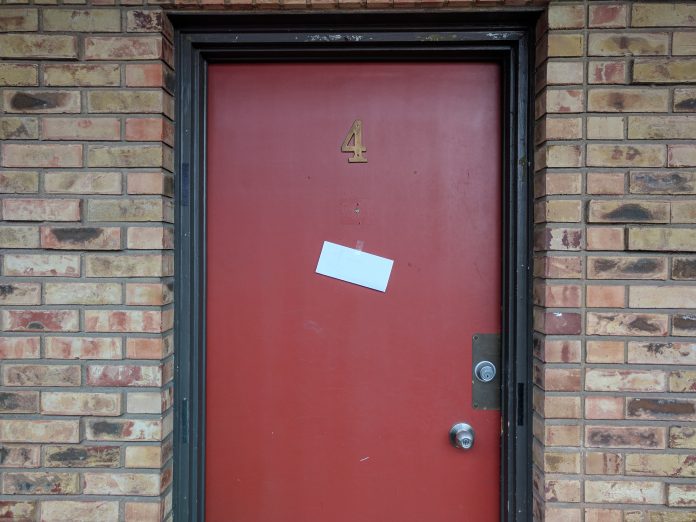After five years of rapidly escalating rents, many Seattle tenants are familiar with the classic landlord letter, “Due to additional taxes and labor costs, your rent is going up a bazillion percent.” If a new initiative is successful, landlords will be required to accurately indicate their costs in relation to when they send out these rent hikes.
I-127, commonly referred to as What’s In My Rent, is an initiative being run by a group called Seattleites for Rent Transparency. The requirements from the initiative are very simple:
Property owners or landlords must provide to renters, in writing, a breakdown of costs included in the price of rent. These include, but are not limited to: actual cost per unit for base rent, mortgage, insurance, property taxes, rental property registration fees, costs/fees associated with maintenance, and operations.
This requirement would apply to nearly all commercially run properties and take effect within 120 days of the initiative passing. Landlords would provide cost breakdowns when they hike rents and whenever a lease is signed. Additionally, reporting would be delivered to the city every five years.
The Campaign Background And Signature Drive
Devin Silvernail is the volunteer running the campaign. His full time job is with Be:Seattle, the nonprofit behind The Pledge, an effort similar to safe spaces. The Pledge encourages socially conscious businesses post that their amenities, such as bathrooms, can be used by people who them. Be:Seattle is also helping to run Tenant Rights Bootcamps which educate tenants about the law.
Silvernail dove into the initiative campaign because he believes that rent transparency will help everyone. In fact, it appears that the measure is very popular. He says:
95% or more people are on board with it. And that’s renters, homeowners, we’ve talked to property managers, we’ve talked to landlords that are on board with it too. Especially the property managers have been saying, ‘yeah, no skin off my back.’ It makes sense. It seems reasonable. People just want to know.
The campaign needs to collect 20,638 valid signatures and the final deadline to submit is September 12th. However, the group is trying to get everything done by early July. Once the signatures are submitted, the city council can pass the measure as-is, pass it with minor amendments, or send it to the voters. If the signatures are submitted in early July, it would appear on the November ballot. A September submission would put it on a special election or Silvernail was very positive about the progress. “We are really kicking ass,” Silvernail said. “And as the weather gets better it’s only going to get better”
Uses For The Data
Devin is hopeful that the information will help guide policy. Right now the city doesn’t have an internal method to track rent trends and relies on private data, primarily from Dupre + Scott. The private data depends on surveys and is most robust with larger apartment buildings.
At this point though, it’s impossible to say how the data will be used and that might be a good thing. Since it would make the data public, people may find unexpected but beneficial uses. The landlord lobby, the Rental Housing Association of Washington (RHAWA), isn’t as optimistic, calling the effort “dumb” (and Seattle’s local lobbyist for developers piled on). The RHAWA has a record of heavy lobbying and lawsuits to stop nearly every effort to provide tenant protections, including laws that would stop discrimination directly leading to displacement. RHAWA’s official statement, as reported by Curbed Seattle, doesn’t really attack the specific initiative, instead suggesting it is only bad because it would lead to other, bad legislation.
The initiative “piles on to the ‘death by a thousand cuts’ strategy Seattle has pursued against small landlords, and would further reduce Seattle’s affordable housing stock as small landlords choose to sell to owner-occupants or developers building new, luxury housing.”
The statement continued, “How is it useful for a renter to know that a landlord, while generating revenue, was building a cash reserve to fund a roof replacement or similar capital expense? What next, a breakdown of all expenses that go into producing a bottle of shampoo, a box of cereal, or a cup of coffee?”
Silvernail took issue with efforts to conflate the initiative with other issues. “It’s just really about transparency. And in the long run, giving the city, for the first time ever, a way to track rent trends without contracting with an outside company.” He sees the initiative as “another block in the mosaic of tenants rights” and believes better information will produce better policy.
Judging by the enthusiasm Silvernail’s encountered while talking to people, most folks may agree with him. If so, you may be seeing this initiative on your ballot very soon.

Owen Pickford
Owen is a solutions engineer for a software company. He has an amateur interest in urban policy, focusing on housing. His primary mode is a bicycle but isn't ashamed of riding down the hill and taking the bus back up. Feel free to tweet at him: @pickovven.

